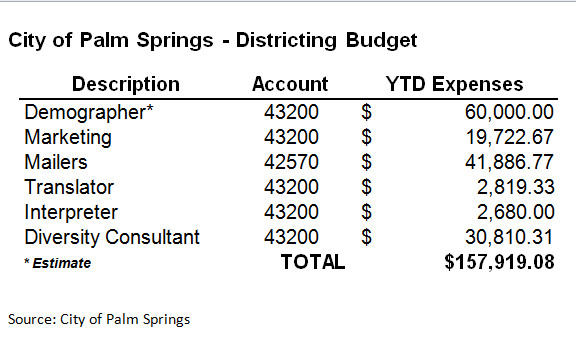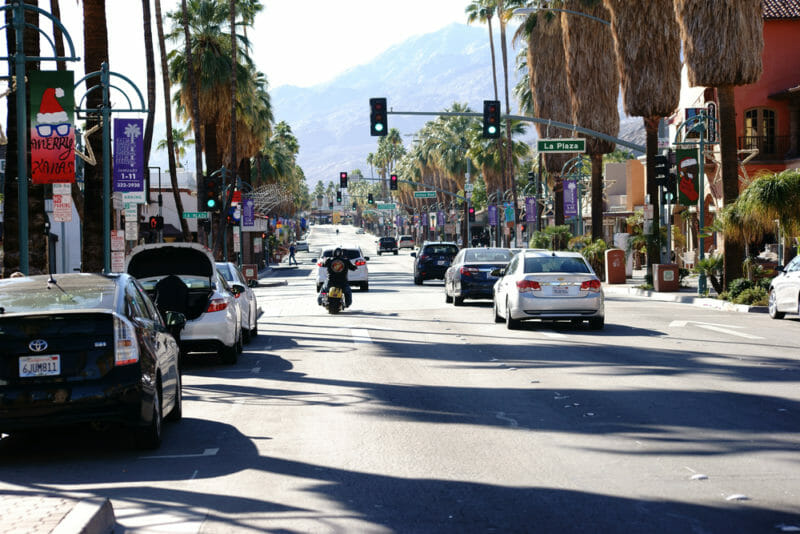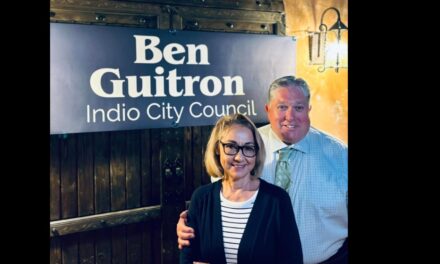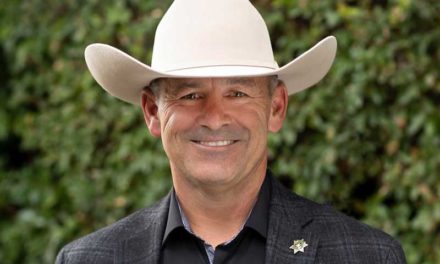RPALM SPRINGS – Not everyone is thrilled with the Palm Springs City Council’s 3-2 decision to move from at-large elections to district-based elections. Mayor Rob Moon and Councilmember J.R. Roberts opposed the decision.
There is some confusion and some disgruntled residents who are now discovering they will not be allowed to vote in the November City Council elections. Only registered voters in Districts 1, 2, and 3 will get that opportunity.
Some opponents argue that Palm Springs is too small to be divided into districts. They say the city will soon be comprised of five fiefdoms.
No candidates have publicly announced their intention to seek election in Districts 1 and 2. Time will tell if splitting the city into five districts opens the door to minorities seeking office as was the intended consequence.
Mayor Pro Tem Geoff Kors is the only one to date that has publicly announced his intention to run in District 3. Moon and Roberts, who also live in District 3, have each said he will not seek re-election.
 To date, the move to district-based elections has cost the city of Palm Springs about $158,000, according to City Clerk Anthony Mejia. In addition, the city will pay up to $30,000 in legal to settle with a group that argued the city’s at-large elections violated the California Voting Rights Act and led to “racially polarized voting.”
To date, the move to district-based elections has cost the city of Palm Springs about $158,000, according to City Clerk Anthony Mejia. In addition, the city will pay up to $30,000 in legal to settle with a group that argued the city’s at-large elections violated the California Voting Rights Act and led to “racially polarized voting.”
If the city had not complied, the majority of city officials feared the city would face an “expensive and very likely futile lawsuit.”
“The settlement resolves all claims and issues to date related to the California Voting Rights Act between both parties,” City Attorney Ed Kotkin said. “This is good news for the city of Palm Springs as we move forward with district elections in 2019.”
The cost of moving to by-district elections in Palm Springs is peanuts compared to what at least one other city paid. In May 2015, the Palmdale City Council voted to allow residents to elect Council members by district. It also agreed to pay $4.5 million plus interest to cover the attorneys’ fees for the three minority residents who sued the city under the Voting Rights Act in 2012. They claimed at-large elections resulted in Latinos and African-Americans being underrepresented in city government.
In March 2018, a Malibu law firm representing the Southwest Voter Registration Education Project threatened to sue Palm Springs over a potential violation of the California Voting Rights Act. The group contended that the city’s at-large elections had led to “racially polarized voting.”
An attorney from Shenkman and Hughes said the city’s at-large races “diminished” the impact of Latino residents in local elections. About 25 percent of Palm Springs residents are Latino. All five members of the current City Council are Caucasian.
No city that has fought against the demand to change to a by-district election system has won despite spending millions of dollars on attorney fees, according to city officials.
Indio and Cathedral City also moved to district-based elections after receiving similar letters.
To date, 21 charter cities have transitioned to district contests by ordinance, and eight by court order.
Image Sources
- Districting_Budget: City of Palm Springs
- Palm Canyon Drive: Shutterstock







